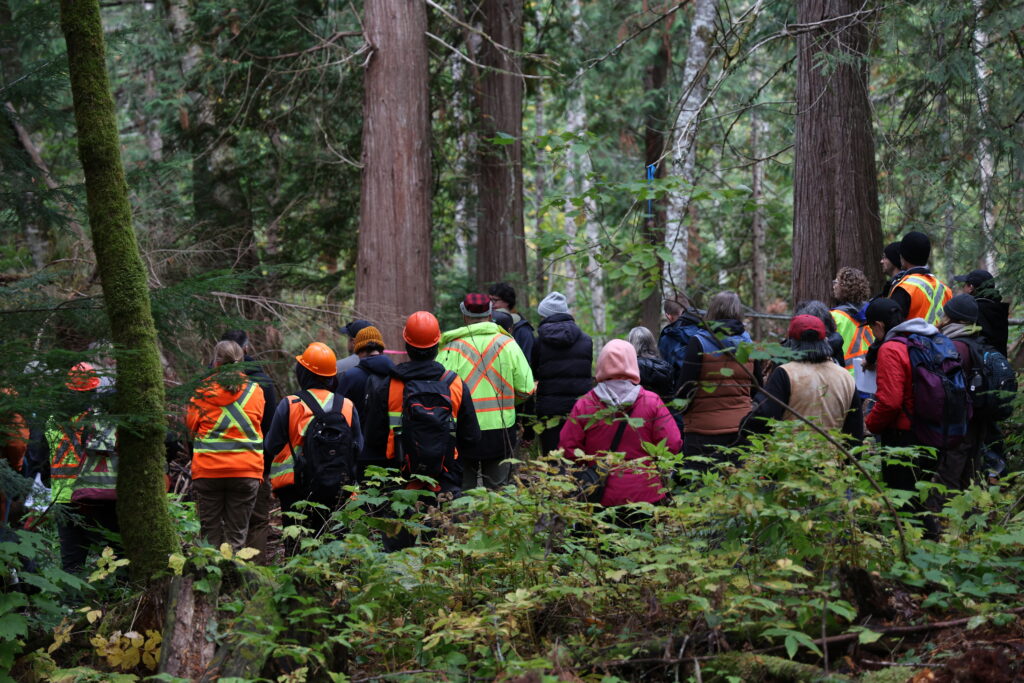Growing Community: What We Heard from a Survey of Communities of Practice

Did you know about 7 out of 10 practitioners feel supported by their Communities of Practice (COP) to implement innovative silviculture? A recent SIP survey found that practitioners were largely satisfied with COPs that effectively delivered information and provided in-person opportunities to network and learn from experts. The survey polled over 500 practitioners to learn more about how existing Communities of Practice support the implementation of innovative silviculture and how they can be enhanced, summarized in a What We Heard report (available below).
A Community of Practice is a group of people who engage in collective learning and knowledge-sharing around a common area of focus or topic of focus. Members of a community of practice come together to collaborate, problem solve and deepen their understanding of a particular area of interest, which might include sharing of skills, techniques, insights, and new approaches. They play a crucial role in facilitating the exchange of knowledge gained through experience and practice.
Read and download the report
People valued the COPs for their role in supporting knowledge sharing and exchange, such as discussing ideas and meeting experts, practical knowledge creation, opportunities for field applications, networking and meeting peers in-person, and fostering community, culture and cohesion.
Other survey key findings include:
- The most popular extension resources are field tours, conferences, peer-reviewed literature, and one-on-one meetings with experts or colleagues.
- The most popular sources of information are webinars, conferences, colleagues, and professional organizations magazines.
- Access to knowledge remains one of the key challenges for practitioners. Over half of practitioners (64%) stated they cannot easily find information to support their work on innovative silviculture.
- On average, practitioners are a part of two to three COPs that support their work in innovative silviculture.
- Over 60% of respondents said they were familiar with innovative silviculture to some degree (somewhat familiar, very familiar or extremely familiar).
Areas of improvement focused on further supporting COPs that are able to facilitate knowledge exchange and deeper discussions with experts and peers on the topic of innovative silviculture. Survey respondents were in search of increased opportunities for in-field and in-person learnings, mentorship and early career practitioner support, as well as increased awareness of the COPs that exist to support innovative silviculture. Extension resources could also be improved by addressing practical knowledge needs; enhancing resources and tools; increasing knowledge of treatments and how to manage for multiple values.
There is a vast network of Communities of Practice (COPs) in BC and they range in their intentionality and the directions that knowledge flows. In this report, we propose a conceptual framework for COPs based on these spectrums of “intentionality” and “knowledge flows”, describing “informational” COPs that excel at knowledge dissemination and are indirectly providing opportunities for gathering as a COP, and “participatory” COPs, characterized by knowledge exchange and high intentionality about its purpose to gather as a COP. We highlight the need for informational, participatory and hybrid COPs to meet the varying needs of practitioners.
The findings from the survey provide a comprehensive understanding of the role COPs play in implementing innovative silviculture and offer clear guidance on how to enhance their support for practitioners. The SIP looks forward to implementing the survey findings to continue to grow and support Communities of Practice and cultivate knowledge together.
The survey findings would not have been possible without you! We thank all survey respondents that generously shared their thoughts and perspectives on their Communities of Practice and extension resources.
For more information, contact: sip.extension@bvcentre.ca

